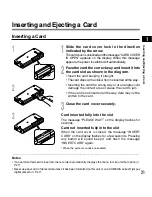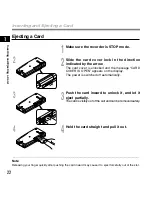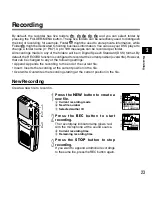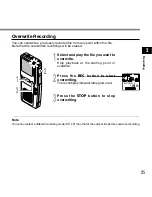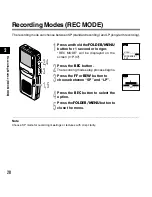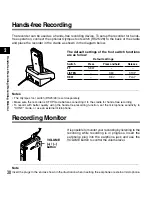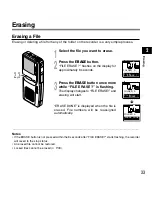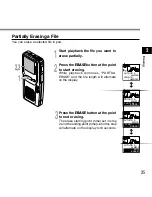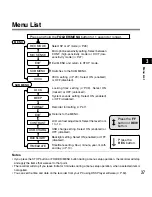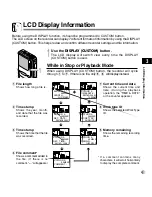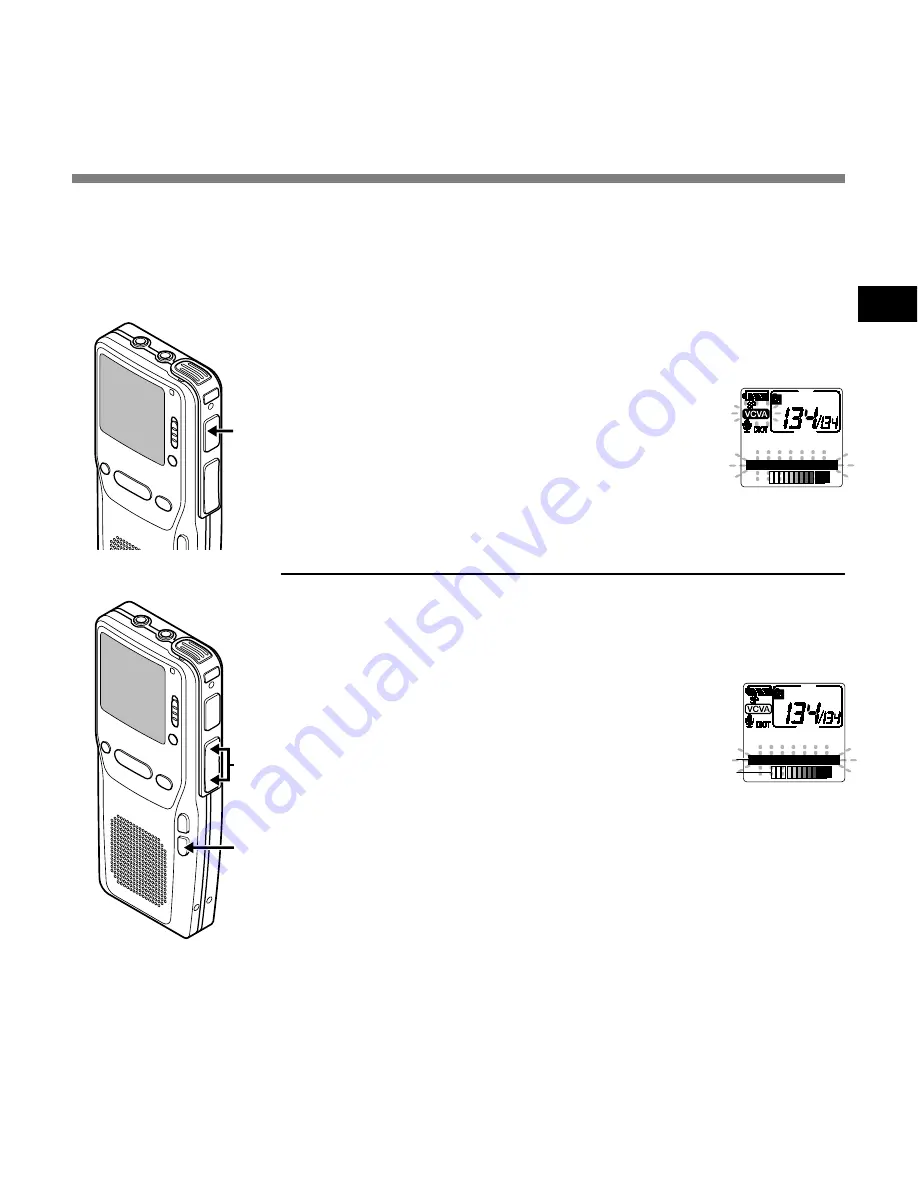
29
2
When the microphone senses that sounds have reached a preset actuation volume level, the built-in Variable
Control Voice Actuator (VCVA) starts recording automatically, and stops when the volume drops below the actuation
level. The VCVA feature helps extending recording time and conserves the memory by turning off recording
during silent periods. This helps make the playback, with no lulls or dead space, more efficient and convenient.
Using the Variable Control Voice Actuator (VCVA)
1
Set the VCVA in the menu to ON (
☞
P.37-
38).
2
Press the
REC
button to start recording.
When the sound volume is lower than the preset
actuation sound level, recording automatically stops after
1 second approximately, and “STANDBY” flashes on the
display. The record/play indicator lamp glows when
recording starts and flashes when recording pauses.
Adjust the Start/Stop Actuation Level
1
Press the
FOLDER/MENU
button during
recording.
The VCVA level screen is displayed.
2
Press the
FF
or
REW
button to adjust the
actuation level.
The VCVA level can be set to any of 15 different
values. The higher the value is, the more sensitive
the recorder can react to sounds. At the highest
value, even the faintest sound will activate recording.
The VCVA actuation level can be adjusted according
to the ambient (background) noise.
a
Start level (varies according to the sound
volume being recorded)
b
Level meter (moves to the right/left according
to the set level)
AUTHOR A
1H25M01S
STANDBY
AUTHOR A
1H25M01S
VCVA LEVEL 05
a
b
..............................................................................................................................................................
Notes
• The start/stop actuation level also varies depending on the selected microphone sensitivity mode (
☞
P.27).
• To ensure successful recordings, prior testing and adjustment of the start/stop actuation level is recommended.
2
Using the V
ariable Control V
oice Actuator
(VCV
A)
2
1







